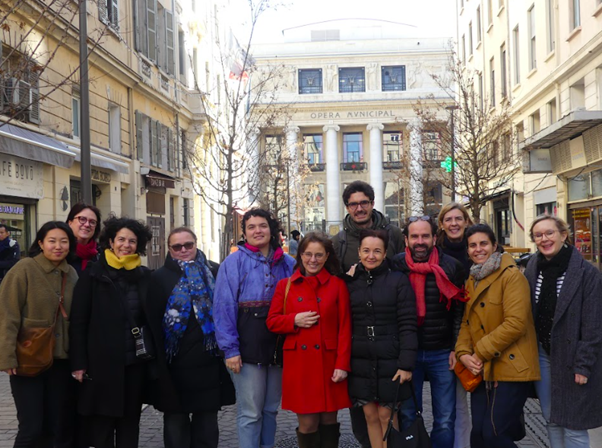SL-ICP University Empowering Society
Erasmus+ Project: Key Action 2 – Cooperation partnership in higher education.
Data:
- Call: Erasmus+ Project: Key Action 2 – Cooperation partnership in higher education.
- Founding entity: European Comission.
- Participant entities: Eurasia Net, Autonomous university of Madrid, University of Athens, Aix-Marseille University, University of Bucharest and University Sapienza of Rome.
- Dates: 15/11/2022 – 15/11/2024.

The project “Service Learning : Intersectoral Collaboration Practices for the development of the students’ soft skills and socially engaged universities” aims at spreading the implementation of Service Learning within European universities and supporting the stakeholders (students, teachers, academic and administrative staff and civil society organisations) to reinforce their collaboration in the higher education system.
Service Learning approach in higher education is a type of experiential learning method which involves students performing community service, reflecting critically on the experience and learning from it on a personal, social and intellectual level. The initiatives are aimed at enhancing learning in higher education, encouraging civic duty and enhancing community participation within students but also within universities ecosystems.
Follow the Youtube Channel dedicated to the project: https://www.youtube.com/@servicelearningKA2-SL-ICP
Why do we need Service Learning ?
Service Learning approach in higher education is a type of experiential learning method which involves students performing community service, reflecting critically on the experience and learning from it on a personal, social and intellectual level. The initiatives are aimed at enhancing learning in higher education, encouraging civic duty and enhancing community participation within students but also within universities ecosystems. In order to meet these needs, we will build new partnerships and reinforce cooperation between universities and civil society organizations.
Main goals are:
- To transfer innovative SL methodologies within European universities, share data and disseminate good practices and key steps to implement SL on the long term.
- To encourage teachers and academic staff to become familiar with the theoretical and practical aspects of the SL method in order to adapt and transfer SL innovation project to European universities.
- To reinforce cooperation between universities and civil society organisations.
- To support students in their learning process with innovative methods and field experiences.
- To support students’ citizenship and involvement on social and environmental issues.
As part of the Erasmus+ strategic cooperation project on Service Learning coordinated by Eurasia net, the participating universities celebrated the first transnational project launch seminar on January 12 and 13, 2023. It was an opportunity to meet for the first time with the teams who will be working together on the project over the next two years.
Over the course of the two days, partner universities had the opportunity to exchange views on all the project’s activities, to discuss the challenges faced by each partner, and to confirm common objectives.
The consortium held its second transnational meeting on April 11 and 12, 2023, remotely bringing together the project’s 5 partner universities. The main objective was to consolidate cooperation within the consortium, revise the project guidelines and assess the progress of the project’s stages in order to facilitate implementation.


During the period from February to June 2023, particular attention has been paid to the implementation of work package 2, led by the University of Athens. The aim is to collect data on current Service Learning practices by gathering the experience of students, university staff and representatives of civil organizations. This data collection will enable us to map the diversity of Service Learning practices within the five European partner universities.
At the same time, work package 3, piloted by the Autonomous University of Madrid, carried out one of the activities of the project consisting in the organization of a training on Service-Learning in which more than 50 teachers from European universities participated. These courses were aimed at teachers and teaching coordinators from the five partner universities, and were designed to familiarize them with the theoretical aspects of Service Learning, as well as to promote the integration of this methodology into curricula. The aim was to promote active learning and civic engagement for students as part of their university career.
- “Improving the life of seniors II”
- “Solidarity Tamam“
- “Museums from students to students”
- “To care the taking in, to take the caring in”
- “Re-naturalization of an area affected by a forest fire”
- “Service learning guided tours with Ancient history students”
- “SDG Awareness and Behavioural Changes. Case of Sustainable Consumption”
- “ABLE. We have the power, the skills, the means and the opportunity to do something”
- “Chemistry in the garden”
- “Adaptive Reuse of Industrial Heritage for the Community”
- “Counseling of parents”
- “Green Outing Experience : Therapeutic Garden and Community”
- “Digital Writing – Content Design for a Better Future for Children”
- “Exploring Environmental Sustainability: Cultivating Knowledge and Care”
- “Expressive and theatrical activities Lab
